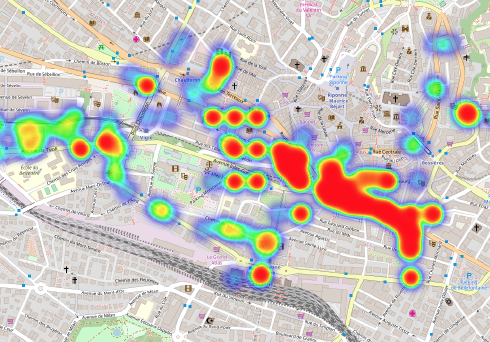2 November 2018, 9-11h, Battelle 432, PhD Defence of Marios Fanourakis titled: “On the Feasibility and Privacy Benefits of On-Device Data Mining for Opportunistic Crowd-Sensing and Service Self-Provisioning”.
PhD Candidate Marios Fanourakis
Thesis Title “On the Feasibility and Privacy Benefits of On-Device Data Mining for Opportunistic Crowd-Sensing and Service Self-Provisioning”
Abstract
Mobile device services are increasingly becoming more and more useful to users by automating many of the tasks that users would normally have to perform manually. This is facilitated by the on-going improvements of the sophistication of services and capabilities of devices.
The average mobile device includes several sensors as a standard feature: accelerometer, compass, GPS, light, audio, image, and others. Moreover, a mobile phone with such sensors roams with its owner, and can be used to collect context information on their behalf. It is often vital to collect data (temperature, air quality, phone usage, etc.) in order to create realistic models that might help us understand and predict the world or verify theories and models developed in lab environments. Assuming that the predictive models and algorithms are in place, the level of automation is only limited by the ability to access data streams and information; however, sharing more and more personal data increases the chance of a user’s privacy being compromised by revealing their identity.
In this thesis we show that the most secure way to proceed with privacy is to not share data that is a privacy threat from the device when the service or task can very well be performed on the device itself. We show that most of the sensor data on a device should be handled with caution due to their potential to be a privacy threat and propose solutions for service self-provisioning for measuring location tracking information through unaided triangulation, and location context by using cell ID traces. When data absolutely needs to reach a third party, we show that opportunistic mixing strategies can indeed be effective, but not necessarily time-efficient, in anonymizing the source of the data, however the data itself needs to be shielded from inference attacks by using additional obfuscation methods.
The Thesis Jury
Prof. Marcel Paulssen (president of the jury)
Prof. Dimitri Konstantas (thesis co-director)
Assoc. Prof. Katarzyna Wac (thesis co-director)
Dr. Niels Nijdam (internal examiner)
Prof. Ciaran Bryce (HEG) (external examiner)
Dr. Sebastien Ziegler (IoT Forum president) (external examiner)
Thesis Defense Location/Time University of Geneva, Battelle 432, 9-11h

